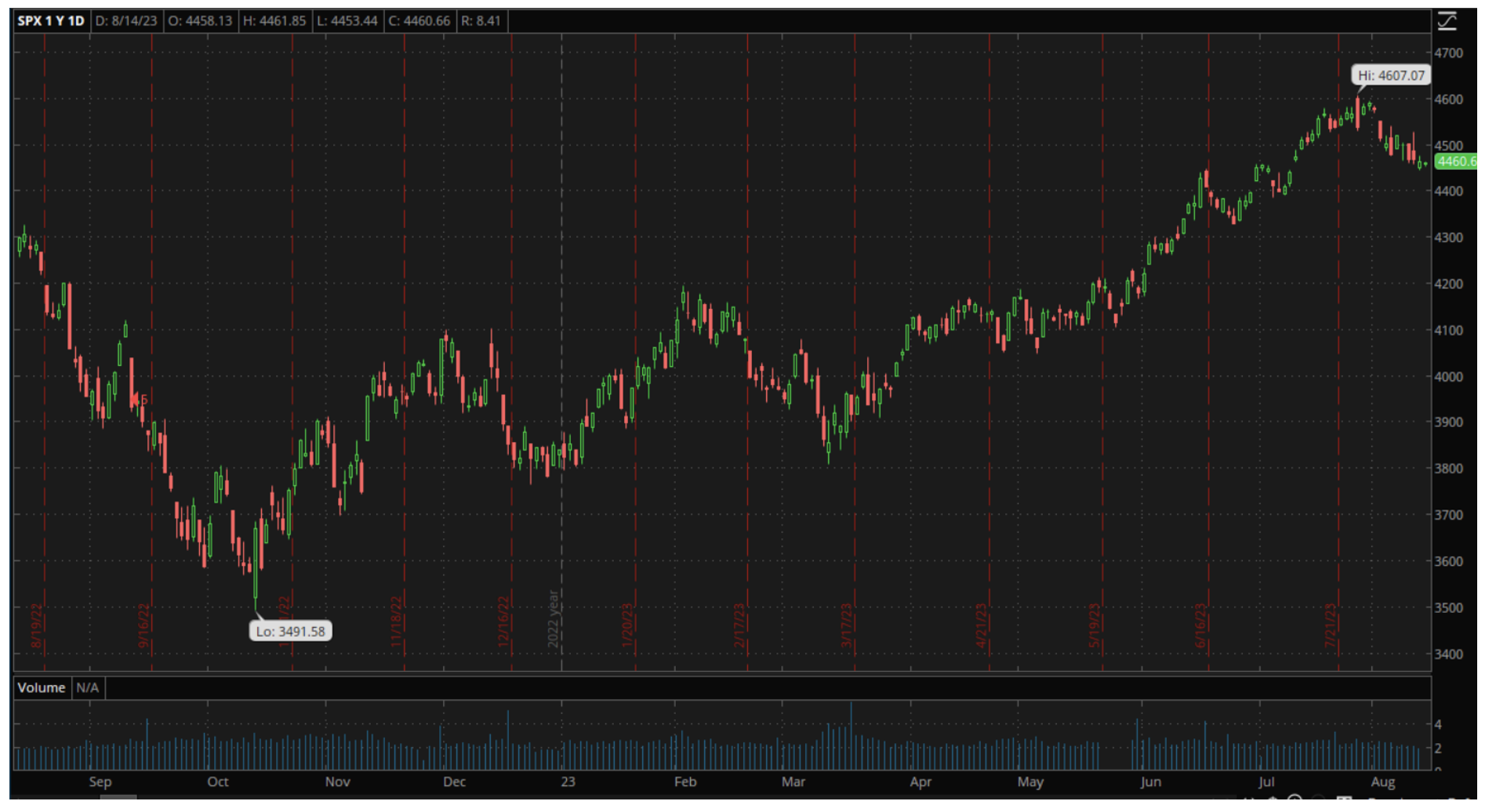We live in an instantaneous world, where we expect to see results from almost everything immediately, but in trading, and even more so investing, there are times when patience is required, times when doing nothing is your best option. We are in one such time now. Stocks, after a strong run up since the beginning of the year, are drifting lower. It is not a big enough move to prompt drastic action, but with the S&P 500 having retraced just over three percent from its July 27 high, it will be tempting a lot of people who took profits on the way up with a view to buying on a dip to deploy some cash. Similarly, there will be some people who have stayed fully invested and, fearful of seeing all that lovely profit dribble away, will be tempted to bank some cash.
Neither of those things are wrong per se. Putting cash to work is what investors do, so an argument can be made that from a long-term perspective, you are never wrong to do that on a pullback. On the other side of the coin, every trader has been told at some point that taking a profit is never a bad thing to do. The thing is, though, the very fact that both seem like perfectly logical actions in the current environment tells you that neither is really smart.

The problem is that there is no way of knowing at this point whether what we are seeing is just a normal consolidation that will enable another move up, or an actual trend reversal.
It could easily be the former. Inflation data of all kinds is moderating, signaling an end to rate hikes before too long and even a policy reversal and rate cuts before too long. That is what the economists at Goldman Sachs (GS) concluded in a report released yesterday, and if that is the case what we have seen so far this year is just the beginning.
But -- and it is a big but -- the full impact of rate hikes is not usually felt in the economy for at least a couple of quarters and there is still a good chance that a significant slowdown is coming before this year ends. There are certainly signs of that in slowing job growth and plenty of anecdotal evidence of cutbacks.
For now, the market is seeing that only through the lens of interest rates, making a slowdown a good thing. Anybody who traded through the boom and bust cycles of the eighties, though, as I did, will tell you to be careful what you wish for. I would like to think that the understanding of the economy and the tools available to central bankers at this point are so much better than forty years ago that this scenario can be avoided, but that is something that has yet to be proven.
“Sit on your hands” is unsatisfying advice to give, but it is also often pointless. Those who listen tend to be those who manage their accounts actively, and they are predisposed to do something, no matter what. If that sounds like you, then the trick at a time like this is to fool yourself. Yes, go ahead and do something, but not anything that will seriously alter your portfolio. Maybe take a small, short-term position in something that will benefit if the market does continue lower, such as an inverse leveraged ETF or, if you think a bounce is coming, try the reverse, buying a small amount of a leveraged bull product or a vey volatile stock that will exaggerate gains.
If you do that, though, understand that such positions are short-term in nature and that you are basically doing something for the sake of doing something. As things sit, it is almost impossible to have a strong view of what the next few months will bring, which is why economists and analysts at major institutions keep changing their views and why financial media is full of silly season stories like the hype around a cage fight between two nerds. When that passes for financial news, it is not a time to make any big decisions.
The views and opinions expressed herein are the views and opinions of the author and do not necessarily reflect those of Nasdaq, Inc.

